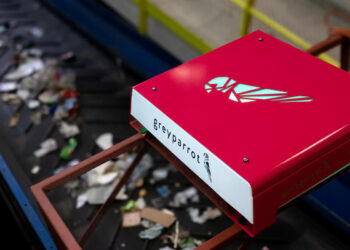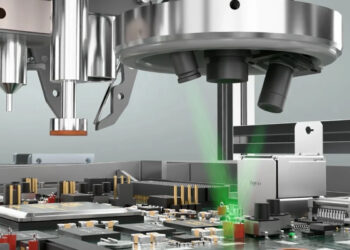Fewer than half of respondents in a new WM recycling survey knew which household products contain lithium-ion batteries — an especially significant finding since fire is a huge safety concern for MRFs and is often caused by batteries.
Similarly, a new report from battery recycling firm Cirba Solutions found that 41% of respondents don’t know the dangers of improper battery disposal.
The survey commissioned by WM also found that 10% of respondents who recycle lack confidence that their plastics are actually recycled.
“WM’s research shows that many Americans are eager to recycle, but they need more education and greater access to recycling in order to build confidence in the practice,” Tara Hemmer, chief sustainability officer, said in a press release.
The survey analyzed recycling behaviors and perceptions to better understand opportunities to bolster U.S. education efforts, investments and accessibility, according to the release. It found that 44% of respondents said they are looking for ways to expand their recycling practices and 64% said knowing more about what and how to recycle would increase their participation.
A separate survey conducted by The Harris Poll on behalf of Keep America Beautiful found that 87% of Americans said recycling is important, but inconsistent rules and limited infrastructure may confuse and overwhelm them, especially people in their 20s and 30s.
In the WM survey, a lack of knowledge about local container acceptance was the biggest barrier to recycling for 45% of respondents.
Unsurprisingly, rural areas face greater issues with accessibility, with 50% of respondents in such areas who responded citing distance from recycling sites among the inconveniences that lead to lower participation.
Of all respondents, 75% said they are more likely to buy products from companies that include recycled materials in their products and packaging. However, around 60% of them reported a lack of clarity on which brands use recycled content in their products, which indicates a need for additional consumer education.
The survey also indicated that participation in commercial recycling is rising, with 69% of U.S. businesses reporting that their recycling program has either grown or expanded in the past two years and 55% indicating they plan to expand their recycling programs in the future.
Because strong end markets are one key to a successful U.S. recycling system, “businesses have an important role to play by finding ways to use more recycled materials in their products – therefore helping to continue bolstering demand for recycled materials,” the report said.
For example, WM collaborates with Unifi for its recycled polyester brand Repreve to turn some recovered PET bottles into textiles including uniforms for WM team members.
In addition, businesses should work to design their products to be as easily recyclable as possible, the report said. One tool is the Design Guide for Plastics Recyclability from the Association of Plastic Recyclers, which owns Resource Recycling, Inc.
“Importantly, federal, state, and local policymakers also have a role to play in generating end-market demand for recycled materials,” WM wrote, adding that minimum recycled-content mandates can help generate commercial demand for recycled materials and support company targets.
For the WM report, research and advisory firm The Futurum Group conducted two online surveys of 1,045 consumers and businesses in July 2024. The consumer survey included 518 individuals over the age of 18 in the U.S., balanced to reflect U.S. census demographics. The business survey included 527 employees from U.S. companies including both recycling program service or contract decision makers within the company, employees responsible for managing recycling programs and general staff.





























